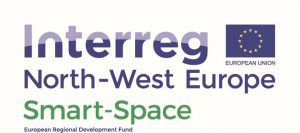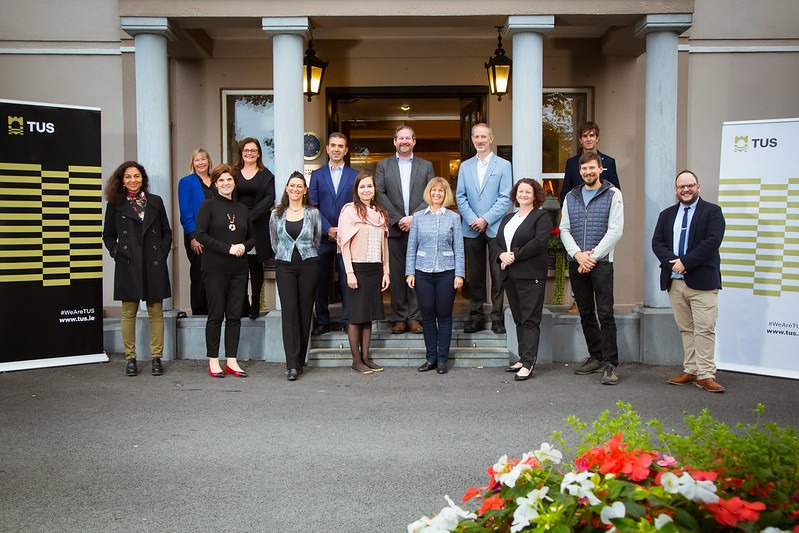Overview
North West Europe (NWE) faces a great challenge to shift towards a low carbon economy by 2050. Municipalities play a pivotal role, as they account for 70% of the NWE energy consumption and CO2 emission. Especially, standard public street lighting accounts for approximately 30% of municipalities‘ total electricity consumption. Advances in intelligent lighting systems offers the opportunity to significantly increase energy efficiency, thereby reducing the carbon footprint.
Smart-Space aims to facilitate the uptake of smart lighting in small/mid-size municipalities to enhance energy-efficiency and reduce CO2 emission. Using smart sensors attached to light poles, street lighting intensity can be automatically adjusted to the actual local needs, realizing 60% reduction in light energy consumption. However, until now implementation occurred mainly in small scale pilot projects, indicating that to reach the low carbon objectives requires a strong, transnational collaboration to move beyond piecemeal solutions.
Smart-Space brings together end-users (cities/citizens) and innovation stakeholders (research institutes, SMEs, enterprises) from the Netherlands, Belgium, France and Ireland to jointly facilitate the uptake of smart lighting to reduce energy consumption and CO2 emission. Smart-Space will jointly: 1) develop an interoperable smart lighting platform adjustable to the specific needs of different municipalities; 2) demonstrate the impact of smart lighting on energy consumption and CO2 emission, while enhancing public space safety and liveability at 4 pilot municipalities; 3) increase awareness on smart lighting technologies and their potential; 4) develop a transition roadmap with procurement standards, implementation guidelines, and policy recommendations to the EU, and 5) establish the sustainable Smart-Space knowledge centre.
On the long-term, Smart-Space will result in the widespread uptake of smart lighting technologies for the public space to reduce energy consumption and CO2 emission across NWE.
Funding
Funding is provided by Interreg NWE. The partnership receives a European Union subsidy of €3,470,000.
Duration
The project will run from 2018 to 2021.
Partners
- Université de Picardie Jules Verne
- Spie Infratechniek B.V.
- Intemo Special Products B.V.
- Technische Universiteit Eindhoven Innovation Lab BV
- Technische Universiteit Eindhoven Inteligent Lighting Instituut
- Katholieke Universiteit Leuven
- Stad Sint-Niklaas
- Stad Middelburg
- LUCI – Lighting Urban Community International
- Tipperary County Council
To visit the official Smart-Space website, please click here 





